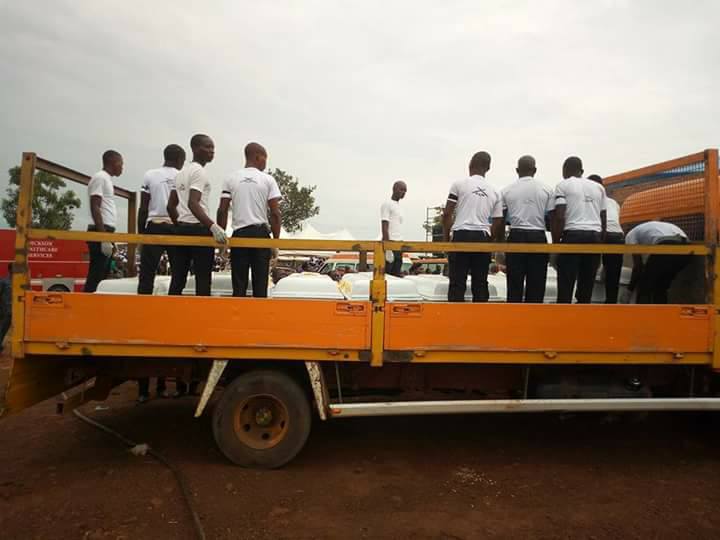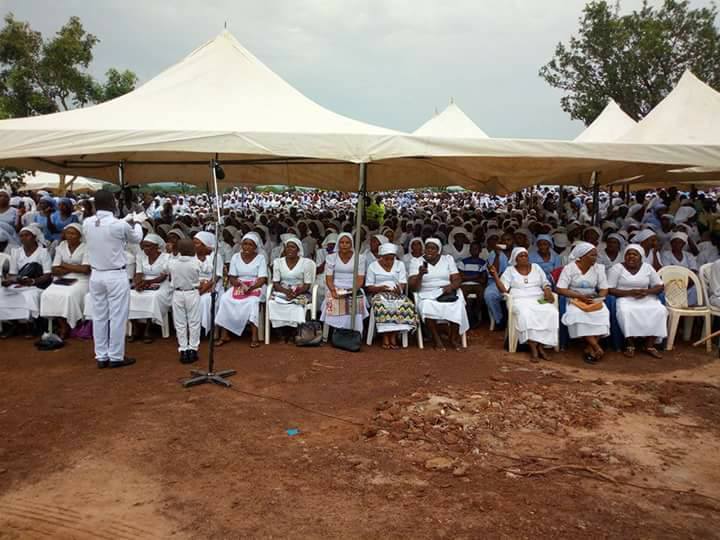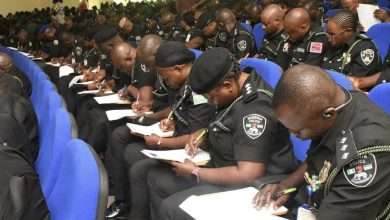
No fewer than 15 corpses, including that of two Catholic Priests, Rev. Joseph Gor, Rev. Felix and 13 others were buried yesterday, May 22 at Benue.
They were among people recently killed by herdsmen at Mbalom, Gwer East, Benue State last month. The Vice President, Prof Yemi Osinbajo and Minister of Transportation, Rotimi Amaechi could not hold back their tears during the mass burial on Tuesday.
Donned in a black kaftan, Osinbajo who tried to fight back emotion during his speech, consoled with the state governor, Samuel Ortom and the people of the state over the sad and unfortunate incident.
The VP who was recently in the state, reassured people of the state that the federal government was doing all within its power to end the senseless killings of innocent citizens in the state and other parts of the country.
He also prayed God to give the bereaved families the fortitude to bear the irreparable loss.
On his part, Amaechi, broke down in tears as he sighted the caskets being lowered into the graves.












